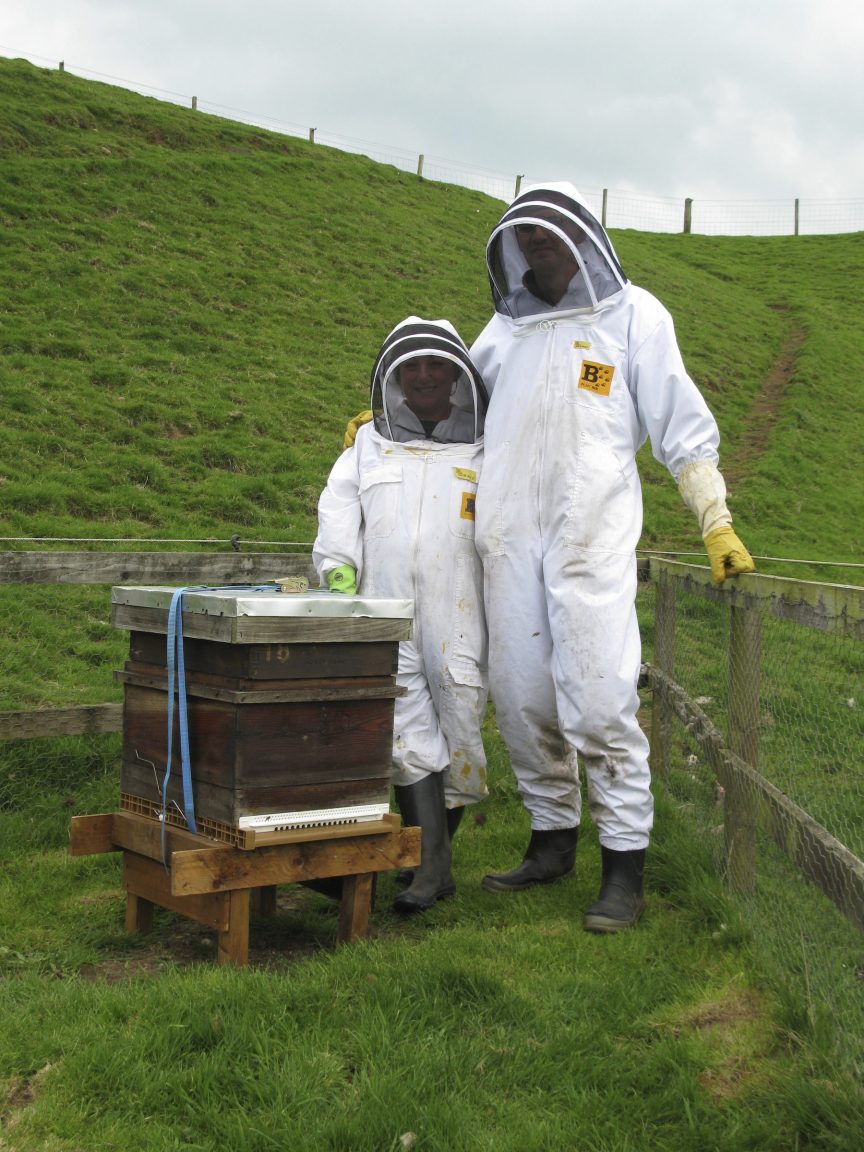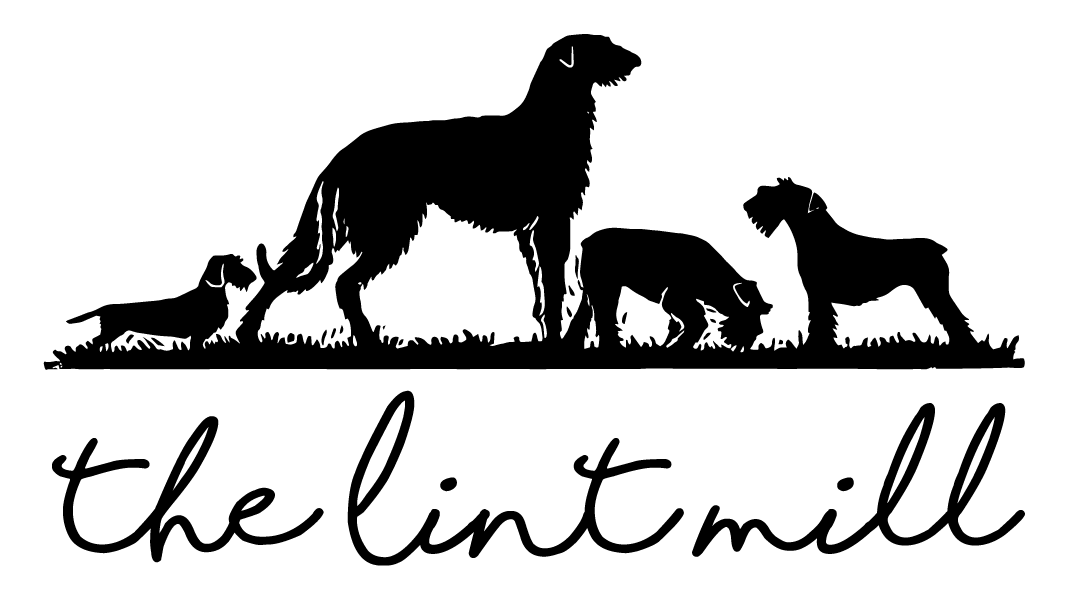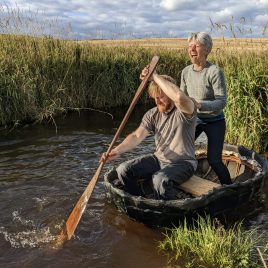
Be Guided by the Bees – Natural Beekeeping At The Lint Mill
Well, our first beehive is in place in the kitchen orchard, or as Colin is preferring to call it, the kitchen apiary!
I have had my Warré hive since last August but I knew that if I was to pursue my ideal of natural beekeeping I’d first have to learn about the bees from someone else, an expert who has worked with bees for a long time.
So, we are delighted to be learning from the innovative Plan Bee*. Warren Bader, the CEO and Chief Beekeeper of Plan Bee Ltd. is passionate about bees, honey and sustainability and the mission of his company is to make a natural positive impact on the local environment and to create great Scottish honey! Warren believes that Plan Bee Ltd is the fastest way to make a natural positive impact on the local environment and although he works with Langstroth hives in a conventional way, he is interested in my Warré hive and keen to help me get started.
I suppose I hadn’t realized that my instinct for how I wanted to keep bees, which led me to investigate natural beekeeping, would mean stepping into a world of controversy, not only between conventional beekeepers and natural beekeepers but within the natural beekeeping world itself.
My reading and my initial contact with the bees is already thrilling and I can see an obsession developing quickly. You barely have to open a book on beekeeping to be astounded by the uniqueness of these creatures and the way they are woven into the fabric of human existence. I know this is the first of many posts I will write about my adventures in beekeeping but for now I will try to answer my friends’ main question of, ‘what is natural beekeeping?’
I found a great list of 9 principles on the Bees for Development website which pretty much covers this approach:
Natural beekeepers seek to work with and develop key principles rather than a book of rules:
- The bee colony is treated as a complete organism
- The natural processes of the bees are respected
- Retention of nest scent and heat is crucial
- Intrusion into the colony is minimised
- Bees make all their comb with cell size of their own choosing
- The bees’ own swarming impulse determines reproduction
- Colonies are overwintered on their own honey
- Bees are local, adapted to local environments
- Colony density is appropriate to local forage conditions
Regular observation allows the beekeeper to understand and recognise the health and development of the colony. Management interventions are informed by the bees’ own needs. Intervention is minimised, using three broad principles:
- Do not put anything into the hive which did not come from the bees
- Do not take anything out of the hive which the bees cannot afford to lose
- Be guided by the bees
*Take a look at their lovely website and keep an eye out for Dexter the Schnauzer who is the Beedog Manager!




Love bees and used tohelp my Uncle Doug with all his hives when Iwas visiting for holidays. Rewardwas jarsof honey to take homeyummy !!! Hope your beekeeping is succesful too